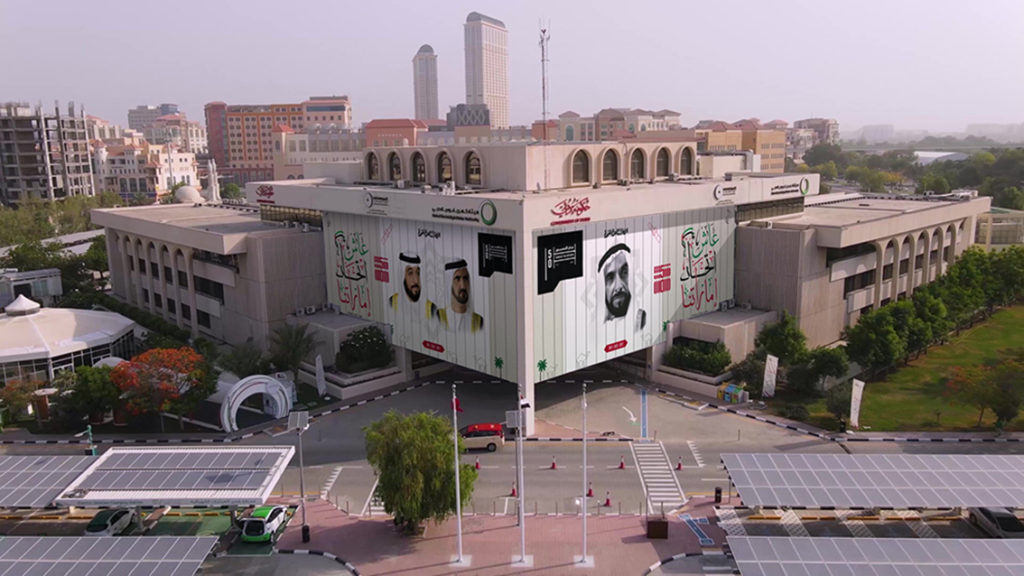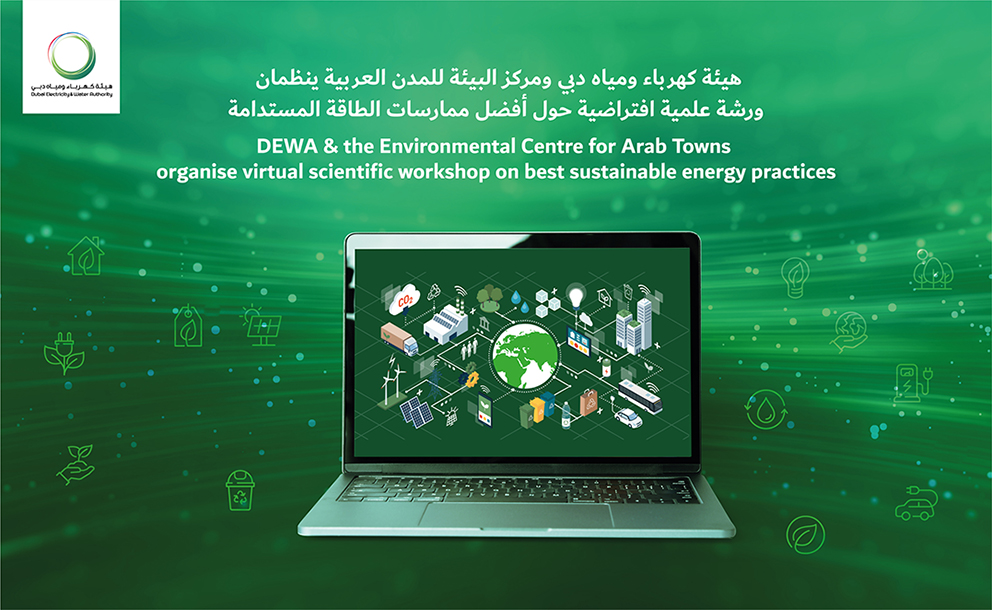Dubai, UAE, Business News: Dubai Electricity and Water Authority (DEWA) and the Environmental Centre for Arab Towns (ECAT), an entity of the Dubai-based Arab Towns Organisation (ATO), organised a two-day virtual scientific workshop on ‘Best Practices in Sustainable Energy’. Around 100 experts from various Arab cities participated.
The workshop shed light on Dubai as a role model of successful sustainability practices and DEWA’s role in achieving the vision and strategies of the UAE wise leadership for the efficient management of energy resources.
“At DEWA, we support Dubai’s firm commitment to sustainability and its proactive role in shaping the future with a keen focus on energy and climate change. Our vision is inspired from the directives of His Highness Sheikh Mohammed bin Rashid Al Maktoum, Vice President and Prime Minister of the UAE and Ruler of Dubai, to make Dubai the smartest and happiest city in the world, propel Dubai into the future and make it 10 years ahead of other cities through government innovation. These directives aim to achieve the Dubai Clean Energy Strategy 2050 and the Dubai Net Zero Emissions Strategy 2050 to provide 100% of energy from clean energy sources by 2050. This is being achieved through mega-projects such as the Mohammed bin Rashid Al Maktoum Solar Park, the largest single-site solar park in the world based on the Independent Power Producer (IPP) model. It has a planned production capacity of 5,000 MW by 2030. In 2019, DEWA achieved a global milestone, represented by Dubai getting the Platinum Rating in the LEED (Leadership in Energy and Environmental Design) for Cities certification awarded by the US Green Building Council (USGBC). This makes Dubai the first city in the Arab world and the MENA region to receive this prestigious certification,” said HE Saeed Mohammed Al Tayer, MD & CEO of DEWA.
“DEWA’s efforts have contributed to reducing CO2 emissions by 33% in 2020, exceeding the target of the Dubai Carbon Abatement Strategy 2021 by more than double. The strategy aims to reduce carbon emissions by 16% by 2021. The Dubai Demand Side Management Strategy 2030, with 11 programmes, has achieved significant results between 2011 and 2020. In 2020, the annual per capita electricity consumption decreased by 23%, and water consumption lowered by 21% compared to 2010. The total savings were 25 TWh of electricity and 40 billion imperial gallons of desalinated water, equivalent to a reduction of 11.5 million metric tonnes of carbon dioxide emissions for the same period,” added Al Tayer.

The scientific workshop focused on the Mohammed bin Rashid Al Maktoum Solar Park and DEWA’s Research & Development Centre (R&D) at the Solar Park. The R&D Centre highlights four major operational areas: electricity generation from solar and clean energy, integration of smart grids, energy efficiency, and water. Its internal labs study and test system reliability, and it carries out external field testing of new technologies and equipment, including the performance and reliability of solar PV panels and removing dust.
DEWA has achieved the Guinness World Records title for the first 3D-printed laboratory in the world. The record was awarded for DEWA’s Robotics & Drone laboratory, housed within the R&D Centre. The Centre also hosts the Green Hydrogen project, the first in the MENA region to produce hydrogen using solar power.
The workshop also focused on Shams Dubai initiative from DEWA to encourage customers to install solar photovoltaic panels at their premises to generate electricity from solar power and export any excess to the power grid. Until 8 December 2021, DEWA has connected 6896 photovoltaic solar installations on the roofs of residential, commercial and industrial buildings in Dubai, with a total capacity of 379.3MW. The workshop also shed light on the advanced systems developed as a collaboration between DEWA and Stanford University, using DEWA’s Space-D programme, to forecast PV panel production in the short term at the Solar Park. The new system reduces errors in the forecast to less than 10%.








